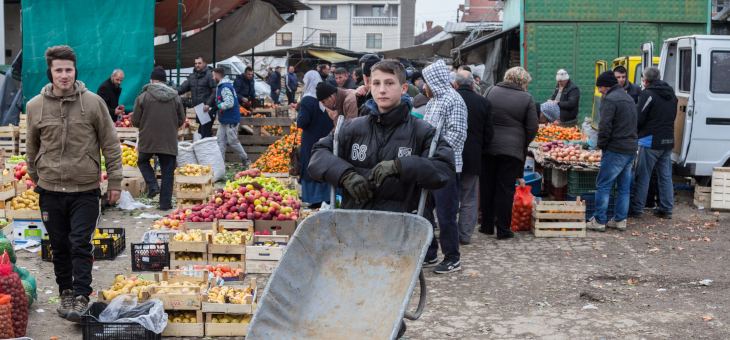Kosovo: A cocktail of anti-corruption, jobs and nationalism leads to a landslide electoral victory for the anti-elite party

Event
On 14 February, the anti-establishment and nationalist leftwing Lëvizja Vetëvendosje (LVV) party (‘Self-Determination Movement’) won 48% of the vote at snap parliamentary elections. Kosovo’s dominant political forces since the end of war with Serbia – i.e. the PDK and LDK democratic parties – failed to obtain more than a combined 30% of the vote. The largest outcome ever for a single party, nearly twice the LVV score in the 2019 elections, was supported by a higher turnout (47%) to put an end to the political domination of independence parties in Kosovo.
Impact
The LVV’s landslide victory is a break point in Kosovo’s still recent political history as an independent state. This transfer of power echoes the one of last September in neighbouring Montenegro. The LVV already won elections in 2017 and 2019 but could barely rule the country due to alternative broad coalitions or the mismanagement of the Covid-19 crisis during the 50-day LVV rule last year. Therefore, given population fatigue with established parties in these challenging socioeconomic times, the high turnout showed the population’s determination – including due to the diaspora – to radically change the political direction by bringing the LVV solidly into power. Moreover, the absence of PDK top figure and former president, Hashim Thaci – on trial before the court in The Hague for war crimes – further weakened the PDK. The LVV’s pledge to create jobs and to crack down on endemic corruption on the back of a nationalist platform appeared to be the dominant issues in eyes of the population. Albin Kurti, LVV leader and briefly the PM in February-March 2020, is expected to form a government coalition with representatives of ethnic minorities to reach a parliamentary majority. Nevertheless, it is not taken for granted given the LVV’s radical postures and critical stance vis-à-vis its western partners. Moreover, the confirmation of Vjosa Osmani (LVV) as president is scheduled in May and is uncertain as she needs the required 2/3 support in Parliament. In a negative scenario, elections might even be called on once again.
The US and the EU, which are expected to pressure the government to resume talks with Serbia, are not the only external targets as the LVV’s nationalist stance is anti-Serbian. Hence, the crucial and difficult relations with Belgrade could worsen under an LVV-led government after years of fruitless attempts to normalise relations with Serbia and to obtain its recognition of Kosovo’s independence. This would not bode well for an improvement of Kosovo’s political risks. In fact, to overcome this issue, the LVV is promoting an ultimate unification with Albania – a target Kurti has repeatedly stressed he could favour if the conditions allow it. Besides a potentially trickier foreign policy, tensions are also expected internally. By putting a central policy focus on fighting corruption and cronyism, it goes without saying that tensions with the establishment, from former political rulers to public administrations and oligarchs, will follow. All those obstacles are likely to hinder future government policies and possibly cloud the improved political stability outlook.
Economic challenges are at least equally big. Kosovo is indeed one of the poorest countries in Europe, attracts few investments partly due to recurrent political instability, has a huge unemployment rate (around 25%) and has mostly remained an emigration place for the youth since its independence in 2008. Covid-19 has just made it more difficult and the poor prospects regarding the relations with Serbia are not helping. The LVV has promised to launch a range of reforms to support economic activity. Among the measures, the party aims to set up a sovereign wealth fund, financed by sovereign bonds and remittances as a result of the diaspora, to support export financing and reduce the wide current account deficit (estimated at around 7.5% of GDP in 2020). Enhanced public subsidies and a deepened economic integration with Albania’s economy are also in the cards. Meanwhile, the protracted pandemic – notably hitting the tourism sector – and slow vaccination roll-out will mitigate the recovery of an expected 4.5% in 2021 from a wide recession (-6%) in 2020.
Analyst: Raphaël Cecchi – r.cecchi@credendo.com